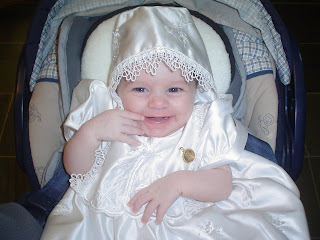Q: Is there a 'cut off' time for late arrivals when you are not supposed to receive the Blessed Sacrament? I had always heard if you arrive after the General Confession and Absolution you were not supposed to receive, but to come to the Altar for a blessing, but I do not know where it is written. Is that true and is it written in Canon Law, the 1928 BCP, the Articles of Religion, or some 'rule book?'
A: Thank you so very much for your excellent question regarding the reception of the Blessed Sacrament at the celebration of the Mass! Different Rites within the Catholic and Apostolic Church have different disciplines regarding this matter, and the Anglican discipline is based principally on the theology and praxis of the Book of Common Prayer.
For example, in the Roman Rite, the laws surrounding the Mass prohibit anyone from receiving Holy Communion who has not be present at the reading of the Holy Gospel; our discipline is not nearly that strict. In the Eastern Churches, the practice varies, as most Eastern practices vary from jurisdiction to jurisdiction, and one or more of the following are required: one is not usually permitted to receive the Blessed Sacrament unless one has indicated one's intention to communicate to the parish priest in advance, and/or has made a sacramental Confession, and/or has said prerequisite prayers in Church before the beginning of the Eucharist - and we are definitely not that strict! So what is the traditional Anglican discipline on when one should absent oneself from receiving Holy Communion if one arrives late during the celebration of the Eucharist?
The answer is located on page 75 of the 1928 American Prayer Book. In the Invitation to the General Confession the rubric states: Then shall the Priest say to those who come to receive the Holy Communion, Ye who do... After the Invitation to Confession, the Prayer Book rubric before the General Confession states: Then shall this General Confession be made, by the Priest and all those who are minded to receive the Holy Communion, humbly kneeling.
Our answer to this particular liturgical question is found in the text of the Liturgy - if one has not heard the Invitation to Confession and has not recited the General Confession, the Prayer Book, by intention, stipulates that one should not then proceed to receive Holy Communion, as the Prayer Book clearly intends that those who desire to approach the Blessed Sacrament should be present in Church, make the General Confession with the Celebrant and receive the Absolution from the Priest. The Prayer Book anticipates and expects that those who approach to receive Our Lord under the form of bread and wine in the Eucharist have made their Confession and received Absolution in the Liturgy itself.
Those who do not arrive at the celebration of the Mass in time to make the General Confession and receive the Absolution should approach the Altar at the Communion and receive a blessing from the Celebrant. In this vein, it is important also to note that reception of the Precious Body and Blood of Christ is not mandatory at every celebration of the Eucharist; it is permissible and occasionally, given one's personal and spiritual state at any given time, even desirable, that one not make one's Holy Communion at a particular celebration of Mass. Attendance at the celebration of the Mass is of moral obligation for all Catholic Christians on all Sundays and Holy Days of Obligation, in fulfillment of the Fourth Commandment, but reception of the Holy Sacrament, Sacramental Communion, is not mandatory. One fulfils one's obligation for Eucharistic worship by faithfully and prayerfully attending the Eucharistic Celebration in Church. If one refrains from receiving the Eucharist at a particular Mass, one can always approach to receive at the next celebration, as self-examination and preparedness warrant. The important thing is that we should always strive to make a good Communion, with a proper preparation, including self-examination, beforehand, and a proper thanksgiving afterward. A good and worthy Communion, made in faith, love and repentance, is supremely important in the Christian life.









